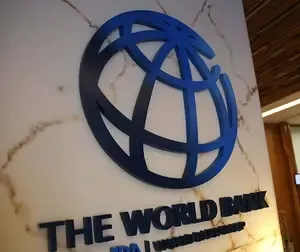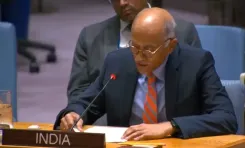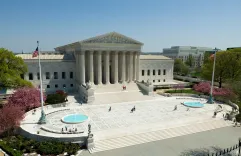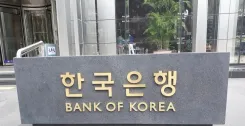Bangladesh Secures $1.16 Billion from World Bank for Sustainable and Inclusive Growth

Dhaka, Dec 22 (NationPress) The World Bank has given the green light to three key operations, which collectively amount to 1.16 billion USD, aimed at assisting Bangladesh in enhancing its health services, as well as water and sanitation systems, while striving for a more environmentally sustainable and resilient future.
Abdoulaye Seck, the World Bank country director for Bangladesh and Bhutan, stated in a press release received on Friday, "This financing will provide the people of Bangladesh with vital services such as health care and clean water, while establishing a basis for a sustainable and climate-resilient future." Bangladesh is recognized as one of the countries most susceptible to the impacts of climate change and faces significant pollution challenges.
The Washington-based institution revealed that the 500-million-dollar Second Bangladesh Green and Climate Resilient Development Credit will facilitate reforms that assist the country in its transition towards environmentally friendly and resilient development, as reported by Xinhua news agency.
The 379-million-dollar Health, Nutrition, and Population Sector Development Program-For-Results aims to enhance access to quality health and nutrition services and strengthen health systems in the Sylhet and Chattogram divisions.
Additionally, the 280-million-dollar Chattogram Water Supply Improvement Project will ensure safe drinking water for over 1 million people in Chattogram through new and upgraded piped water connections.
This initiative will establish approximately 200,000 new household water connections and improve sanitation facilities for around 100,000 residents in low-income neighborhoods.
This project is part of a larger World Bank initiative focused on providing Water, Sanitation, and Hygiene (WASH) services to around 100 million people in the region by 2035.
Moreover, the project will assist the Chattogram Water Supply and Sewerage Authority (CWASA) in enhancing its operational efficiency and financial stability while tackling water loss issues such as high leakage rates, metering errors, and illegal connections.
It aims to minimize water losses by installing new water meters and implementing 46 Smart District Metered Areas (DMAs) for a more reliable water supply, leak detection, and real-time monitoring of water consumption.









